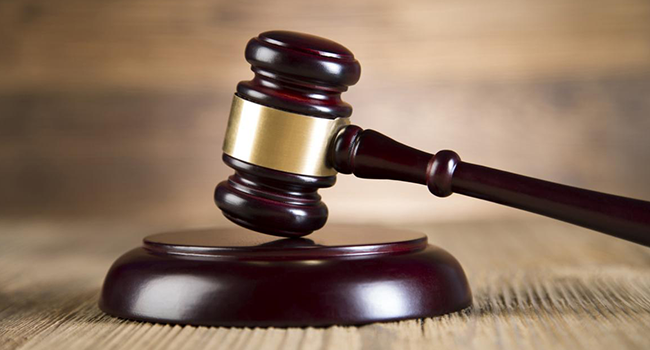The Supreme Court has reserved judgement in the appeal filed by the Kano State Governor, Abba Yusuf, contesting the decisions of both the Court of Appeal and the State Election Petitions Tribunal that led to his removal from office.
The five-member panel, led by Justice John Okoro, has deferred the judgment following the adoption of brief arguments by the involved parties.
During the Kano Governorship Appeal hearing, Justice Okoro advised the counsels to collaborate and determine which of the nine appeals and cross-appeals should be prioritized. The decision on the main appeal would then be binding on the remaining eight.
All parties unanimously agreed to focus on the main appeal for the apex court, with cross-appeals, including challenges to Abba Yusuf’s membership, adhering to the outcome.
Abubakar Mahmoud, counsel for the Independent National Electoral Commission (INEC), initiated proceedings by highlighting that the key witness, whose testimony led to the invalidation of Yusuf’s 165,616 votes, was summoned to provide evidence. He argued that the testimony was inadmissible as it was not front-loaded with the main petition at the Tribunal, rendering both the testimony and exhibits incompetent.
The counsel representing the Independent National Electoral Commission (INEC) informed the court that the contested 165,616 ballot papers were genuine and originated from INEC, not elsewhere. He emphasized that it is not the responsibility of a voter on election day to verify if a ballot paper is signed, stamped, or lacks the date of the election; such tasks fall under the purview of a party agent.
Mahmoud further explained to the court that the recounting of votes occurred privately in the tribunal chambers after deducting the disputed 165,616 votes. Even when these ballots were brought to the Court of Appeal, they were not demonstrated.
During the proceedings, INEC’s counsel conveyed that only a portion of the unlawful ballots was scrutinized at the tribunal. He clarified that his stance was not biased, emphasizing that his concern was solely with the correct interpretation of the law.
Regarding Abba Yusuf’s membership in the New Nigeria’s Peoples Party (NNPP), he asserted that it is an internal matter of the political party in question and not within the jurisdiction of an external body. He supported this claim by referencing previous decisions made by the apex court.
He emphasized that the issue is not a constitutional matter, contrary to the All Progressives Congress (APC)’s claim, which relied on Section 177(c) of the Constitution, as amended, and Section 77 of the Electoral Act.
Mahmoud criticized the practice of political parties attempting to use the court as an “arena” to secure victory after the voters have made their decision.
He informed the apex court that the New Nigeria Peoples Party (NNPP) officially nominated Abba Yusuf as its candidate for the governorship election. Mahmoud argued that if the APC had any objections to Yusuf’s candidacy, it should have raised them after INEC published the names of candidates.
Governor Yusuf’s counsel, Wole Olanipekun, challenged the annulment of his electoral victory based on the failure of the INEC presiding officer to sign or stamp the ballot papers. Olanipekun argued that this issue is not covered by the Electoral Act but is related to INEC’s guidelines, and thus, it is not sufficient grounds to declare the votes unlawful, warranting nullification.
Furthermore, Olanipekun informed the court that, according to the evidence presented by an expert witness during the Tribunal stage, only about 1,800 ballots lacked signatures or stamps, and these figures are insignificant and inadequate to justify the election’s annulment.
Regarding Yusuf’s membership, Olanipekun emphasized that it falls within the internal affairs of the concerned political party, asserting that the courts lack jurisdiction to decide on a political party’s candidate selection. He appealed to the court to overturn the Appeal Court’s decision, which upheld the tribunal’s ruling to remove the governor.
On behalf of the APC, Akin Olujimi maintained that Section 177(c) of the Constitution is a crucial determinant in the Kano matter. He argued that, being a constitutional issue, the court has jurisdiction to make a decision on it.
On November 13, the Court of Appeal affirmed the tribunal’s decision. The Appeal Court concurred with the tribunal’s judgment, stating that Abba Yusuf’s candidacy violated the Electoral Law, rendering him ineligible to contest the election.
In September, the tribunal nullified Yusuf’s victory in the March 18 governorship election, and it confirmed Nasiru Gawuna of the APC as the duly elected governor of Kano.

